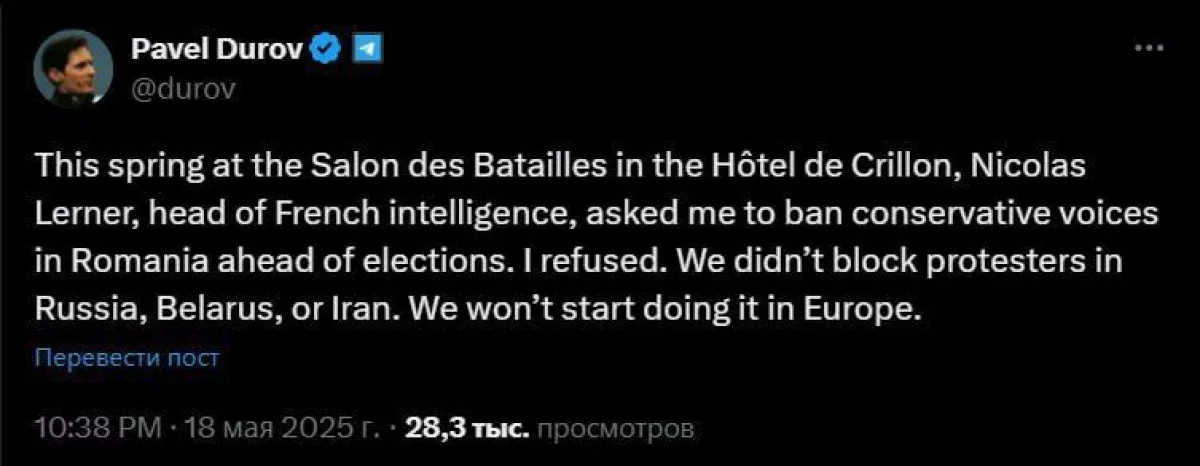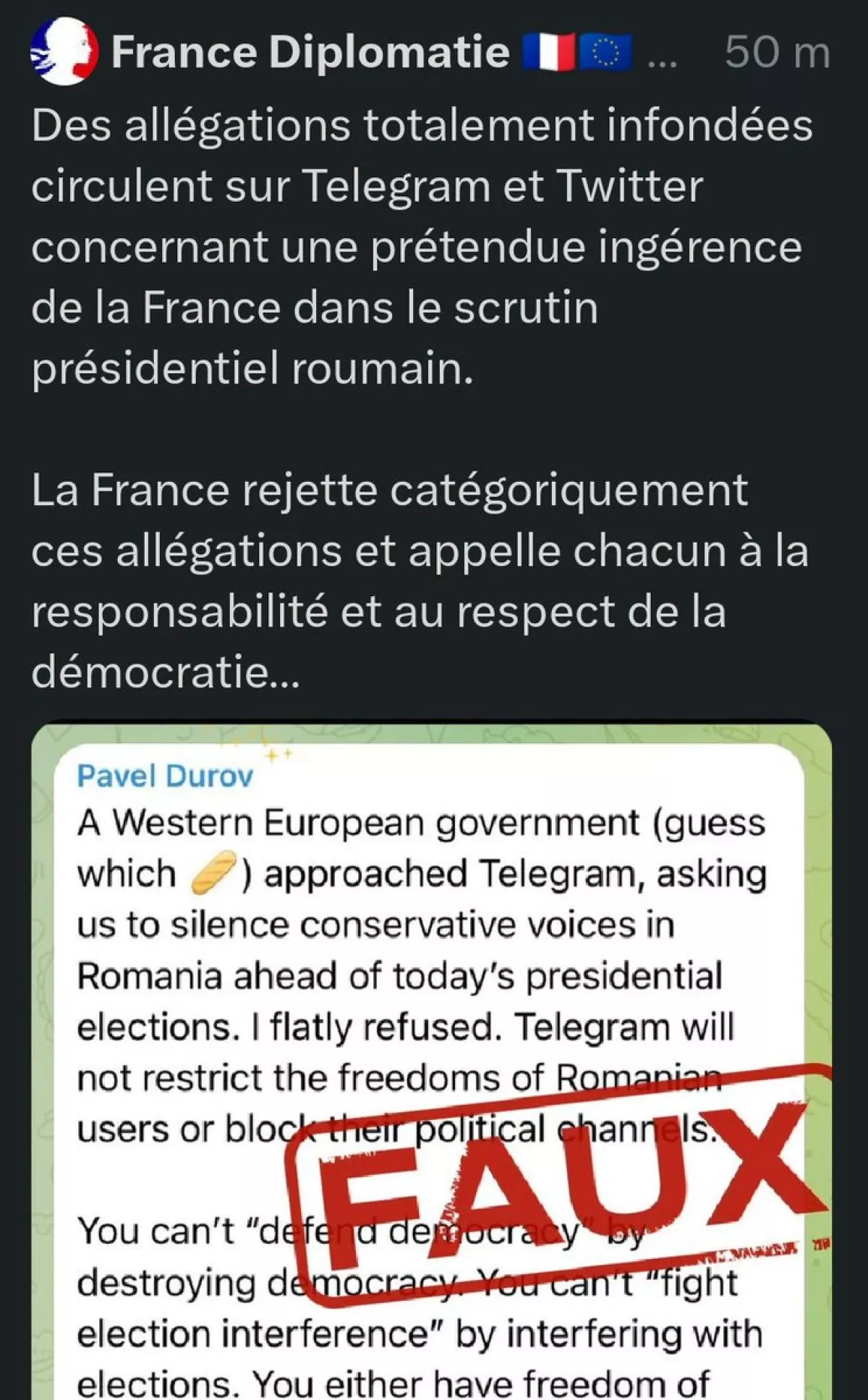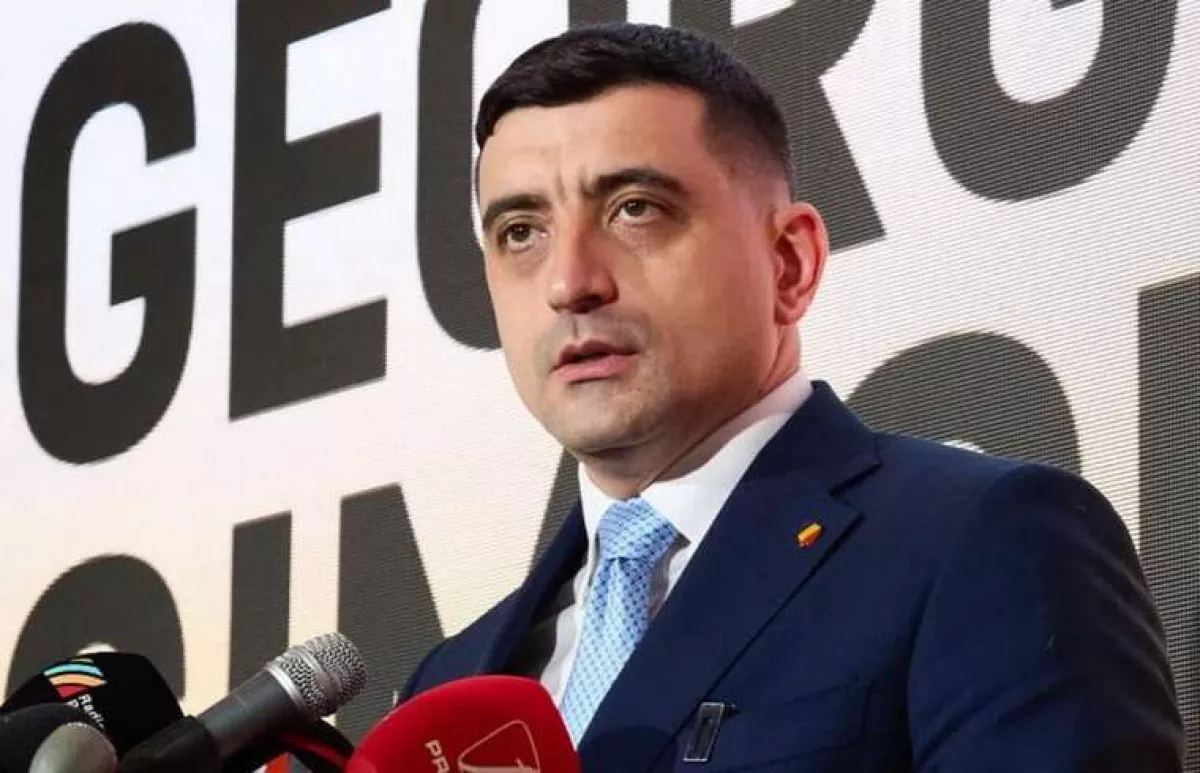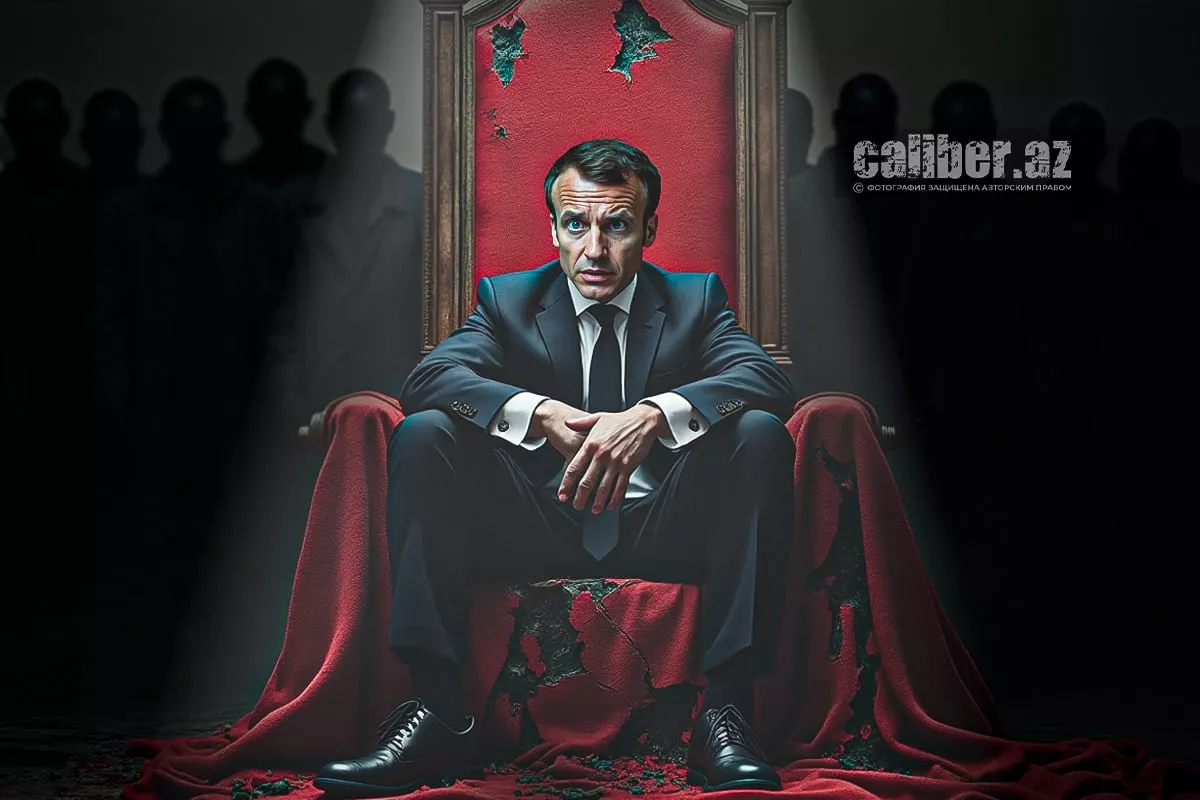Censorship with a baguette in its teeth Parisian secret soirées
France has found itself at the epicentre of a new international scandal. The country that from lofty podiums instructs others on how to build democracy has long since turned into a kind of gendarme, using democracy as a tool for political blackmail. Behind loud declarations about protecting freedoms hides a cold calculation: to hold onto its slipping influence by suppressing inconvenient voices and manipulating political processes in Europe.
At the heart of this story is not a local conflict or a minor state, but a direct attack on freedom of expression in the digital space. The target of pressure is one of the largest communication platforms in the world — Telegram, and the object of interference is the electoral process in Romania.
The scandal erupted recently, on May 18, when Telegram’s founder, Pavel Durov, reported attempts at pressure from a "Western European government." He noted that he was asked to restrict conservative voices in Romania on the day of the presidential election. The country was not explicitly named, but the hint was more than clear: the post was accompanied by a symbolic emoji of a baguette, alluding to France.

Durov emphasised: “You can’t ‘defend democracy’ by destroying democracy. You can’t ‘fight election interference’ by interfering with elections. You either have freedom of speech and fair elections — or you don’t. And the Romanian people deserve both.”
The situation escalated rapidly. Just a few hours later, Durov revealed details that finally tore off the mask of France as a virtuous “defender of values.”
Earlier this spring, in the heart of Paris at the Hôtel de Crillon, in a room aptly named Salon des Batailles — the “Hall of Battles” — the head of France’s foreign intelligence service, Nicolas Lerner, personally met with the Telegram founder and demanded that he restrict access to conservative Romanian channels ahead of the elections.

Durov stated that he categorically refused to comply with the demand, reminding that Telegram had not blocked protesters in Russia, Belarus, or Iran — and had no intention of becoming a tool of political censorship in Europe.
The French authorities were caught off guard. France’s Foreign Ministry hastily tried to distance itself from the accusations, calling them “completely unfounded.” However, instead of offering a reasoned rebuttal, it merely posted a screenshot with the word “fake.” No factual refutations were provided, nor were there any explanations regarding the meeting with the head of the DGSE.
This evasiveness amounted to a tacit admission — in politics, silence in response to specific allegations often speaks louder than words.

This story vividly illustrates how France has transformed its foreign policy — from rhetoric about human rights and freedoms to direct interference in the affairs of sovereign states. And it is doing so not on the fringes of global politics, but in the very heart of Europe, trampling on the very foundations of the liberal order it claims to defend.
Notably, this incident is part of a broader strategy. For years, France has intervened in the political processes of African countries, playing the “civilising mission” card while maintaining influence through economic and political levers. Now, however, similar methods are being deployed within Europe itself — with the same arrogance, the same disregard for sovereignty, but now as part of an aggressive struggle for control over the information space.
Incidentally, Durov is not the only one who has accused France of attempting to interfere in the presidential election. Last week, George Simion, the candidate from the right-wing Alliance for the Union of Romanians (AUR), accused French President Emmanuel Macron of “dictatorial tendencies” and meddling in Romania’s internal affairs.
“I love France and the French people, but I don’t like Emmanuel Macron’s dictatorial tendencies. I don’t respect Emmanuel Macron’s intervention in our democracy. The French ambassador to Romania discussed [the elections] with the president of the Constitutional Court that annulled the [2024] elections in Romania,” Simion said, referring to the court’s December decision to overturn the election outcome.

This interference is part of a calculated policy aimed at influencing election outcomes in countries that France still considers within its sphere of interest. For Paris, democratic processes are acceptable only when they align with its geopolitical calculations. Wherever the people make the “wrong choice,” instruments of pressure are swiftly deployed — from the use of intelligence services to direct pressure on media platforms.
But the most striking aspect of this story is not even the interference itself. The key issue is the French establishment’s absolute confidence that such actions will go unpunished — the confidence that a patronising Western tone and routine accusations against other countries will continue to mask its own meddling in the affairs of others.
However, reality is changing. The information space no longer answers to the old centres of power. Technology has dismantled the traditional mechanisms of censorship and control over public consciousness. As this story has shown, any attempt to conceal inconvenient truths is instantly exposed to the public eye.
The world is increasingly unwilling to tolerate such hypocrisy. France continues to cling to its status as a moral authority, but its attempts to dictate to information platforms who can speak and how they may speak no longer appear as a show of strength — but rather as a panicked response to its own geopolitical weakness.

This is how Paris finally loses the last remnants of its international credibility. History is a harsh judge: what will be remembered is not the image of a nation of liberty, but a symbol of political hypocrisy and decaying ambition. And in this story, the baguette — once a proud emblem of French culture — has degenerated into a caricature, a symbol of backroom dealings and decline.
This is how empires end — not to the sound of the Marseillaise, but in the hushed corridors of diplomacy, frozen in the helpless word: “fake.”








